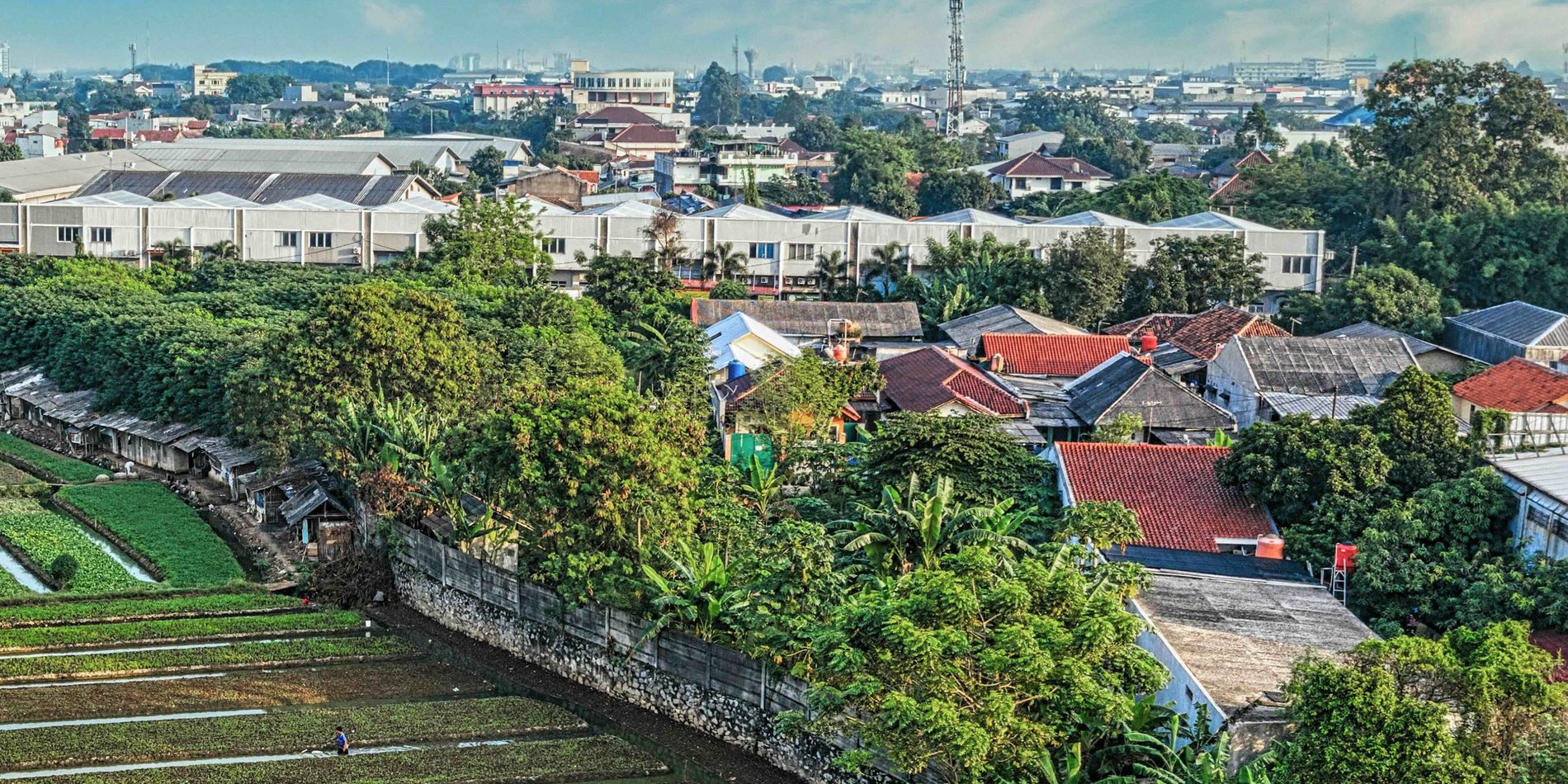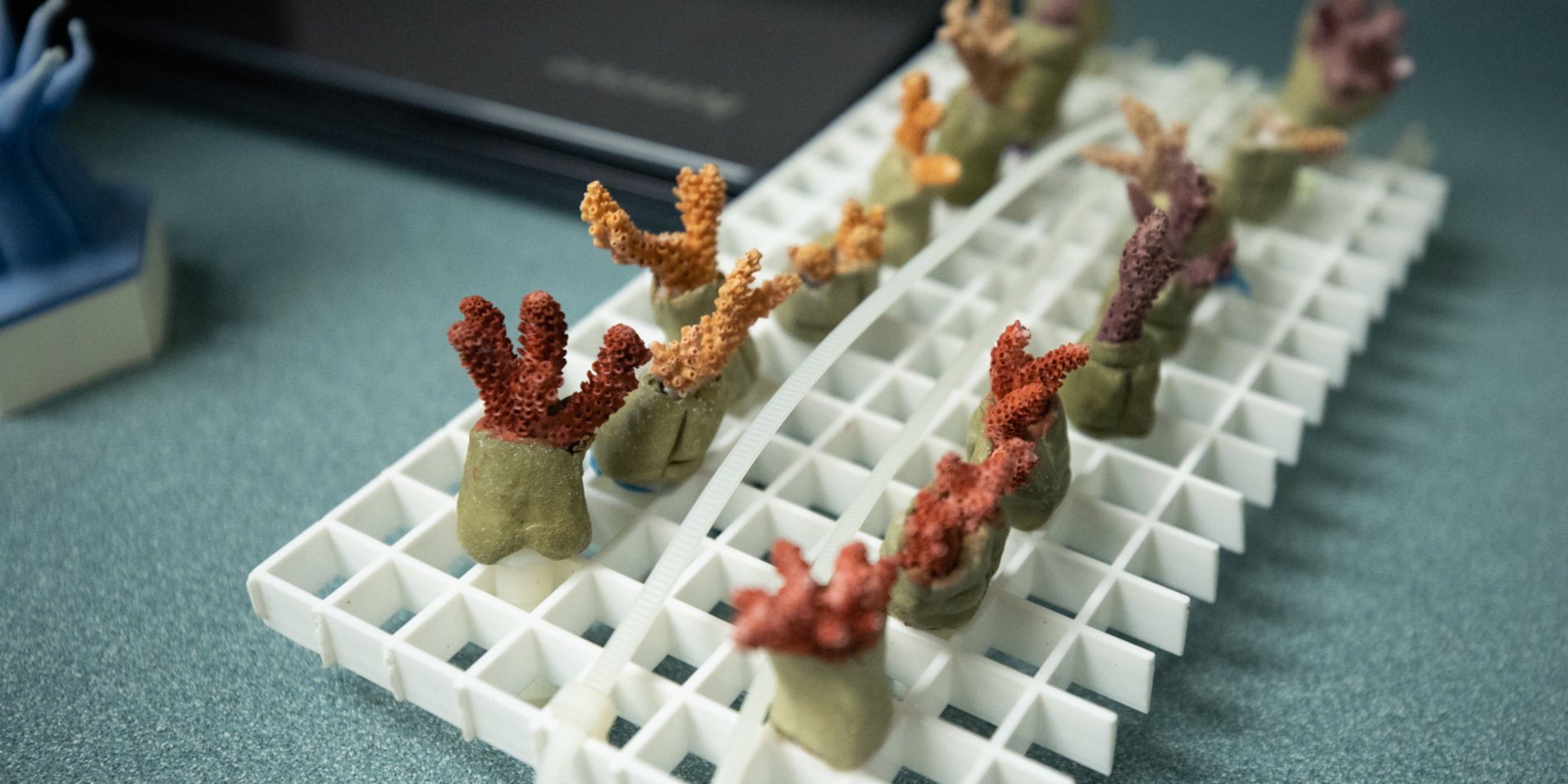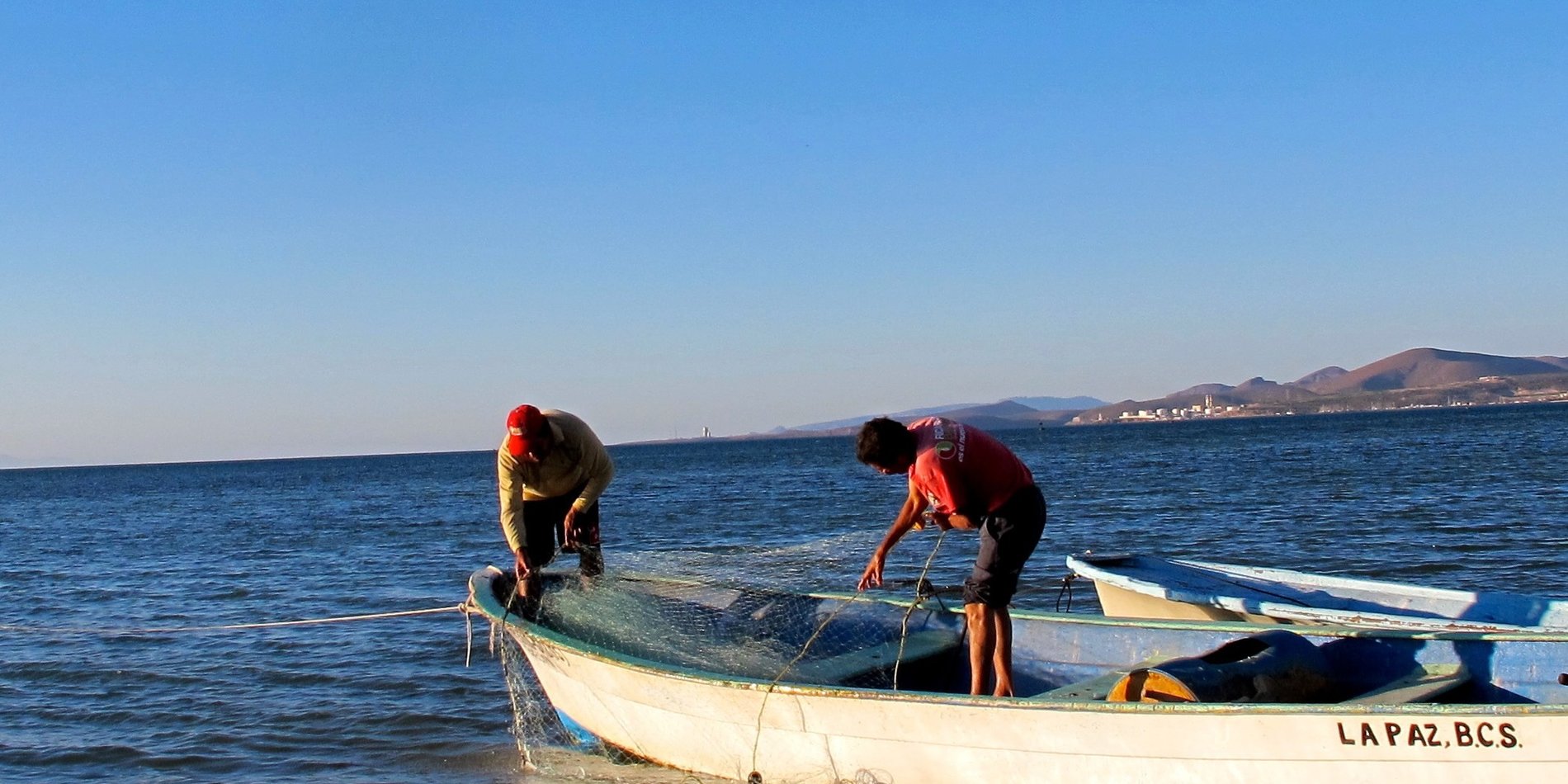Staff Spotlight: Colette Wabnitz
When did you first start thinking about ocean and environmental challenges?
I’ve always been in awe of nature. As a child growing up in Saudi Arabia and Senegal, I was incredibly fortunate to have parents who loved going on adventures. Every weekend or holiday, we would visit nearby natural treasures in the desert, the jungle, or along the coast. Those adventures cultivated a profound passion for being outside and surrounded by the elements. Throughout his career, my dad did development work. So, growing up I was able to witness firsthand how human and environmental challenges are often intertwined. When I went to university, I knew that I wanted to keep learning about the natural world. But what I truly wanted to understand were the many dimensions of and connections between the health of our environment and that of human communities. I felt then as I do now that gaining greater understanding of how nature and people are connected — by asking questions about what is happening, why, and what changes affect whom and how — is essential to foster change towards sustainability and equity at all levels.
You spent quite a few years in Senegal. Did living along the coast have an impact on the way you think about your work now?
I spent the most formative years of my childhood in Dakar — Senegal’s capital. Every day, I saw, heard, and smelled the ocean. I wouldn’t be able to separate my childhood from the ocean. Dakar has many fish markets, but probably the most famous one is called Soumbedioune. Being on that beach as a kid was an incredible experience. Hundreds of colorful pirogues on the beach or coming in through the waves, men and women moving about with clear purpose, fish being hauled out and gutted or fried. Seeing the intricate connections between people and fish, and how important fishing, selling fish and eating fish is as a way of life to people all along the coast, left a deep impression. Those experiences definitely shaped the way I approach my work today. First and foremost, in valuing the diversity of fisheries contexts, perspectives and experiences. It also cultivated a desire to actively listen, with an open mind, to people’s breadth of lived experiences. I may ‘see’ or think I ‘see’ certain dynamics at play. What is actually unfolding is often quite different. I’ve been lucky to study underwater landscapes and work with an incredible diversity of people, from communities, private sector and governments, across the Caribbean, Middle East and Pacific. Each experience has been unique and has shaped my thinking over time. Yet, my fundamental approach remains the same and was inspired by my experiences in Senegal.
What motivated you to pursue a PhD?
I love learning, asking questions, being creative and being challenged. From that perspective, going to university made sense, and a PhD followed naturally. But I also really wanted to do something applied, get a chance to interact with a range of actors, and work towards fostering change on the ground. My interest in science is motivated by applying the understanding we derive from it to real world outputs, to making the world more just, safe, and livable. I wasn’t convinced a PhD would allow me to strike the balance in knowledge and skills I was after. There is much more scope today to pursue an interdisciplinary PhD with exposure to people and experiences in non-academic fields. Ten years ago, this was not as common. I chose to do my masters in Tropical Coastal Management at Newcastle University because of its multidisciplinary focus and emphasis on teaching practical and transferable skills. During that time, a close friend had repeatedly encouraged me to pursue PhD research. I told him that I would only want to do a PhD with Daniel Pauly, because he’s one of the world’s best fisheries scientists and critically, because he also had worked to apply his research to sustainable development contexts. Plus, he has a remarkable life story. It sounded so far-fetched I was convinced this would be the end of the conversation. After my Masters, I worked in Cambridge at the UN Environment Programme World Conservation Monitoring Centre. Little did I know that my friend wasn’t about to relent. Two years later, he found out that Daniel was looking for a student, and he told me “Now, you have to apply.” I did and got the position — the stars really aligned.
It sounds like you’ve approached the connections between humans and the environment from a number of facets. How did you navigate your own strengths and weaknesses throughout your work?
I’ve indeed thought to understand the connections between people and nature through different lenses and contexts. They have been varied geographically and ranged from urban centers to remote atolls. I’ve also worked in situations where nature is valued because it provides benefits to people, to ones where people want to maintain nature entirely separate from people, as wild, and ones where communities consider people and nature as kin. Along the way, I’ve learned from a wide range of stakeholders, including governments, NGOs, businesses, and small-scale communities. I genuinely believe we need to make time to listen to each of those perspectives. And that it takes a diversity of partners to co-create and implement solutions that are effective, sustainable and just in addressing ongoing crises. As for my strengths and weaknesses, I see them as two sides of the same coin. I’m really comfortable working with and being present for people in smaller groups, yet find it more challenging, for example, to present to a formal broader audience. The former has helped me stay nimble, grounded and present for others when navigating many different circumstances. Today’s world seems to place a lot of emphasis on an extrovert ideal that can feel quite foreign but does keep me challenged. I’ve realized that strengths and weaknesses, together, lend you power, teach you humility, and make you who you are.

Taken on Nauru (left) and Kiritimati (right) while working as a Fisheries Scientist for the Pacific Community (SPC)
What are some projects you’ve worked on since joining the COS team?
Most of my efforts currently focus on our projects assessing the risk of Illegal Unregulated and Unreported (or IUU for short) fishing and labor abuses in fisheries. I’ve also really enjoyed being part of the Blue Food Assessment. It’s exciting that we have separate initiatives that are so incredibly interconnected. For example, work on sustainable ocean economies is intricately tied to our work on small-scale fisheries, given how important the sector is to Pacific Small Island Developing States. Small-scale fisheries provide valuable livelihood opportunities and are critical to food and nutrition security - connecting to our blue foods work. Industrial fisheries also play an important role in providing ocean economies with revenue and making blue foods available. But, certain fleets are a known source of IUU and compromise sustainability, and undermine the well-being of communities. This interconnectivity is fascinating and provides the perfect space to be creative, especially given COS’ approach of working from insight to impact. That’s where drawing on my previous experiences and thinking across disciplines comes in handy. I’m fascinated by the multiplicity of different perspectives.
Are there areas of your research you think about in different ways because of your multilingual background?
Speaking different languages and working in many different places have definitely influenced the way I do research. It’s as though I have access to different channels of communication as well as different lenses through which to interpret observations. It has given me a deep appreciation for nuance, has heightened my perceptivity and made me highly sensitive to the importance of diversity and to a sense of justice. Speaking different languages has also opened doors, literally and figuratively. It has allowed me to more deeply understand and appreciate different cultures and given me access to a wealth of knowledge only available in the original tongue and networks of experts and students that do not intersect with English speaking institutions. Research has actually shown that being multilingual literally makes you see the world in a different way!
We know you’re in Canada right now! Any favorite spots in Vancouver?
There are so many! Granville Island – a local vibrant market. Van Dusen – Vancouver’s stunning botanical gardens. Queen Elizabeth Park - a large municipal park just up the road from where I live and with a constant display of seasonal plants. Fish and chips in Steveston. During COVID-19 work from home, it’s been wonderful to be able to go on walks and see the progression of the seasons in the neighbourhoods around me. Going on long walks or cycling along the seawall is a great and exciting way to explore the city.

What are some of your current hobbies?
Knitting! It’s been fun and fulfilling to make sweaters for my friends’ children. I also have developed a daily yoga practice and have been spending more time cooking. There is something incredibly cathartic about preparing a meal - the colours, the smells, the tastes. I treated myself to some of the Ottolenghi cookbooks and have loved exploring different flavors and spices. The past year has been really intense. These activities together with an exercise routine have allowed me to make some space, daily, to ground myself.

If you could give one piece of advice to a young person interested in interdisciplinary ocean work, what would it be?
Stay curious and keep an open heart. This means getting out there, connecting, observing the world around you, pushing your boundaries. In the process, ask questions, lots of questions, from as many perspectives as possible, actively listening to shared experiences, keeping an open mind, being kind and mindful. Stories matter. A diversity of voices matter.



